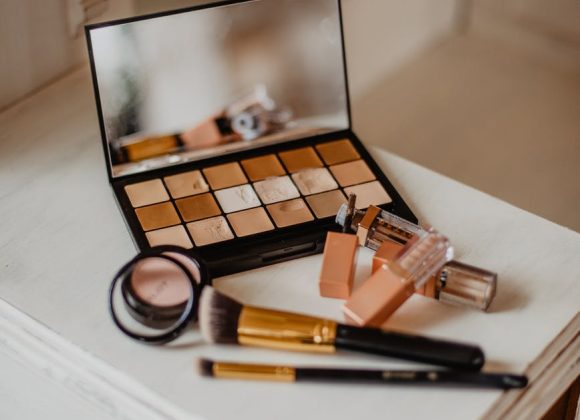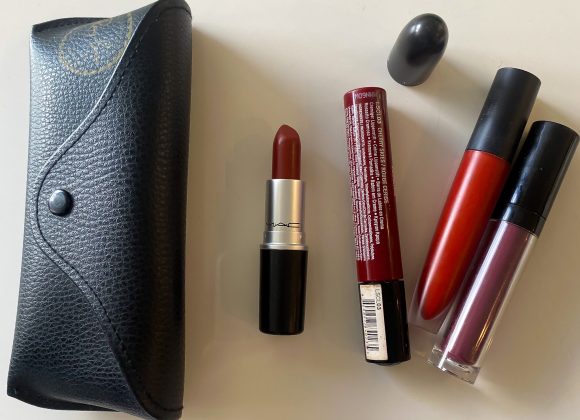Foundations are confusing. There are different formulas, different shades (none of which look like real human skin colour), and different forms of application. There are different types of coverage and then there is the marketing – which can be even more confusing, if not misleading.
If you want to clear the air about foundations for the oily skin type, you are in the right place. Let’s jump right in.
The right foundation gives you a solid base to help the rest of the makeup shine as well as stay in place.
Foundation is, well, the foundation of your makeup. This is the first colour that you put on your canvas – your face – giving it a base for further artistry. It is, therefore, imperative that you get both the shade and the formula right.
How much makeup you want to put on is entirely up to you, but I always recommend a good foundation as it evens out your skin tone, and makes the eye and the lip makeup pop. The right formula and shade will also give a healthy glow (not shine) to your face – and make it look great in photos.
Pick the right formula for your skin type
This is the most important part, you MUST get the formula right. Foundations come in a variety of formulas, but for the oily skin type I recommend liquid and powder matte foundations – especially if you live some place warm and humid. Primarily liquid foundations, as I feel they blend better and are buildable. You can, however, experiment with a variety of these formulas and find what works the best for you – I’m sharing what has worked for me.
Coverage depends on spots, scarring, and pigmentation
You need at least a couple of foundations in your beauty closet. A sheer/medium one for daily use, and a full coverage foundation for going out and/or special occasions.
It’s true foundations are buildable, but if not done properly they may look cakey. Plus, with oily and particularly acne-prone skin, I feel less is more when it comes to makeup.
Pick foundations depending on the amount of coverage your face needs. If you have a lot of pigmentation and scars to cover up, you need a full-coverage foundation. You won’t have to apply it as much though; a little will go far.

Stay away from anything that says ‘luminous’
Us oily-skinned folks are blessed in the shine department. We really don’t need any more of it. Instead, we need mattifying products, or in any case products that control shine.
This means that cult favourites such as Makeup Forever Ultra HD Invisible Cover and Armani Beauty Luminous Silk foundations may not be for us. (This, however, might change if you live in a cold place where the face is not greasing up much.)
Matte is your friend
Obviously! We have some excellent matte foundations in the Indian market, and new ones are being constantly added. This is probably the best time to be an oily-skinned person.
Even through matte foundations my skin’s natural oils seep through and the result is a dewy look which people wonder how I created. ‘Dewy’ is never my intention. Only oil-control.
Some of my favourite foundations are the Lakme Absolute White Intense Foundation, Estee Lauder Double Wear Stay-in-Place Foundation, and my most favourite ever – Lancome Teint Idole Ultra 24H Long Wear Foundation. These are all very friendly to oily skin and photograph well.
Look for ‘noncomedogenic’ in description
So you’ve found what seems to be the perfect matte formula. Great! But that doesn’t mean you should pick up the product just yet. Another very important word to look for is ‘non-comedogenic’, which means the product will not clog your pores. In other words, it will not break you out.
This is very important for oily-skinned people. Our pores are always open and producing oil, which means we are highly prone to acne as well. You don’t want your foundation messing up your skin.
Look for ‘long-lasting’ and ‘sweat/humidity-resistant’
Because, honestly, if a foundation doesn’t last long, what’s the point! I’ve never come across a drugstore (read reasonably-priced) foundation that actually stays through heat, humidity, oil, and sweat. If you live someplace where the weather tends to be cooler and dry, you may have better luck with them.
But for hot and humid climates, at least in my experience, the lower-priced foundations simply do not last. So even if a foundation ticks all the boxes, but if it doesn’t read sweat-resistant and humidity-resistant, you can give it a pass.
Or, you can pick it up but it can’t be your go-to foundation. You will definitely need to invest in one of the high-end ones to get enviable results all day long. M.A.C with its Studio Fix range of liquid and powder foundations ticks all the boxes. So do foundations from Estee Lauder, Huda Beauty, and Lancome. These are expensive purchases, but you won’t regret them.
Get swatched in-store at least once
I can’t bear to think of the amount of money I have wasted on buying foundations after guessing their shades online. For the longest time I had no yardstick. I didn’t know my M.A.C shade so I didn’t have anything to compare a shade with.
Even if you are not interested in buying M.A.C products, I highly recommend you get shade-matched in one of their stores. Department stores routinely have dedicated M.A.C counters and assistants to help you with this. Knowing your M.A.C shade will give you a reliable reference point with several other brands.
For years I thought I must be NC30, based on looking at YouTubers and bloggers in general and estimating their skin tone (which is already not accurate since images and videos are routinely edited/touched).
But on a whim I once walked into a NYKAA store and asked the assistant to suggest a M.A.C foundation for me. One look at me and he said, “NC25.” He picked a matte powder foundation for me, swatched on the inside of my wrist, and it was a perfect match!
Getting swatched in-store has another advantage – you get professional guidance if you are confused about your undertone. That will help you with future online purchases from different brands.
Here’s a foundation comparison guide for those who know their shade in one of the more popular brands.
Your foundation shade should match the colour of your neck
There’s often a mismatch between the colour of our face and that of our neck. For some our faces are lighter than our necks and for others the face is the darker part of the two. I’m very prone to surface tanning, and combined with highly oily skin, which is constantly attracting grime, my face is usually a few shades darker than my neck and the rest of the body.
The idea with a foundation is to blend it all out so that it doesn’t look like you have a face of one colour and the body of another colour.
Go a shade lighter with foundations that tend to oxidize
Oxidization is a real problem with certain brands, but not everybody experiences it the same way. For instance, I had long read that M.A.C’s studio finish compact powder foundation tends to oxidize a lot. This basically means that after a few minutes of application, say half an hour, the foundation turns orange or grey on the skin, and may continue to darken through the day. It also greases up the face and you end up looking worse for having worn base makeup.
When such is the case either stay away from that foundation or go a shade lighter than your real tone. You can always darken it with a darker foundation to adjust the colour. (M.A.C, by the way, did not oxidize on me. Unfortunately, L’Oréal foundations always oxidize on me so I’ve stopped purchasing them.)
Have a variety of foundations in the closet
With foundations the key is in experimentation. You want not just one, but two or three foundations that are perfect for a variety of purposes. One for daily wear, one for special occasions, one for winters, and one for summers.
That doesn’t mean you need four foundations necessarily. But at least two. And preferably one in a darker shade and one in a lighter shade to allow for surface tanning (or the lack of it) through the year. I find oily skin tans very easily and our skin tone does change from season to season, if not month to month. You can always mix up shades to find the perfect shade for any given day.
Read the reviews obsessively
Whichever foundation you feel like buying, especially the pricey ones, please check as many reviews of the product online as possible. If more than a few people have commented that a product greases them up, you know that foundation is not for you. Amazon, NYKAA, Sephora, Ulta, YouTube – there are several avenues for research.
To sum up
Your foundation should:
- Be the right formula for your skin type
- Be the right shade for any given day/time of the year (accounting for tanning)
- Provide adequate coverage
- Be non-comedogenic
- Be oil-, sweat-, and humidity-resistant
- Be long-lasting
- Be blendable
- Give your face a healthy glow
- Photograph well
- Give you a wow factor
What have your experiences been like finding the right foundation? Have any questions? Please comment below or connect with me on Instagram for more skin and makeup talk.








